
Outjo: Gateway to Adventure in Namibia
Nestled in the Kunene Region of Namibia, Outjo is a small but vibrant town that serves as the perfect gateway to some of the country's most stunning attractions. Known for its friendly locals and warm hospitality, Outjo is often the first stop for travelers heading to the world-famous Etosha National Park. The town's unique charm lies in its blend of natural beauty and cultural heritage, making it a must-visit destination for anyone exploring Namibia. Outjo offers a glimpse into the everyday life of Namibians, with its bustling markets, quaint cafes, and historic buildings. The town's rich history is reflected in its architecture, from the German colonial-era structures to the more modern establishments. Visitors can explore local museums to learn about the town's past and its significance in Namibia's history. The lush surroundings and scenic landscapes make it an ideal spot for nature lovers and photographers alike. Beyond its cultural and historical allure, Outjo is also a haven for adventure seekers. The nearby Ugab River offers opportunities for hiking, bird watching, and even spotting wildlife. For those looking to relax, there are numerous lodges and guesthouses that provide a serene escape from the hustle and bustle of city life. Whether you're passing through on your way to Etosha or staying a few days to soak in the local vibe, Outjo promises a memorable experience for every traveler.
Local tips in Outjo
- Visit the local markets early in the morning for the freshest produce and unique souvenirs.
- Plan your trip to include a visit to the Etosha National Park, which is just a short drive away.
- Try local Namibian dishes at the town's cafes and restaurants for an authentic culinary experience.
- Book your accommodations in advance, especially during peak tourist seasons, to ensure availability.
- Don't miss the opportunity to explore the nearby Ugab River area for hiking and bird watching.
Outjo: Gateway to Adventure in Namibia
Nestled in the Kunene Region of Namibia, Outjo is a small but vibrant town that serves as the perfect gateway to some of the country's most stunning attractions. Known for its friendly locals and warm hospitality, Outjo is often the first stop for travelers heading to the world-famous Etosha National Park. The town's unique charm lies in its blend of natural beauty and cultural heritage, making it a must-visit destination for anyone exploring Namibia. Outjo offers a glimpse into the everyday life of Namibians, with its bustling markets, quaint cafes, and historic buildings. The town's rich history is reflected in its architecture, from the German colonial-era structures to the more modern establishments. Visitors can explore local museums to learn about the town's past and its significance in Namibia's history. The lush surroundings and scenic landscapes make it an ideal spot for nature lovers and photographers alike. Beyond its cultural and historical allure, Outjo is also a haven for adventure seekers. The nearby Ugab River offers opportunities for hiking, bird watching, and even spotting wildlife. For those looking to relax, there are numerous lodges and guesthouses that provide a serene escape from the hustle and bustle of city life. Whether you're passing through on your way to Etosha or staying a few days to soak in the local vibe, Outjo promises a memorable experience for every traveler.
When is the best time to go to Outjo?
Iconic landmarks you can’t miss
Etosha National Park
Explore the breathtaking landscapes and abundant wildlife of Etosha National Park, a premier safari destination in Namibia.
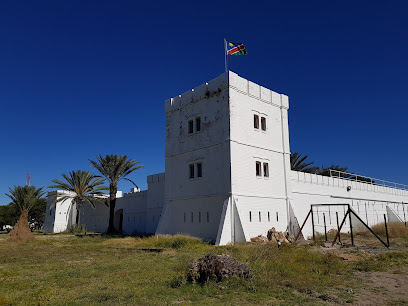
Etosha Safari Camp, Gondwana Collection Namibia
Discover the beauty of Namibia at Etosha Safari Camp, your gateway to thrilling wildlife adventures and serene landscapes.
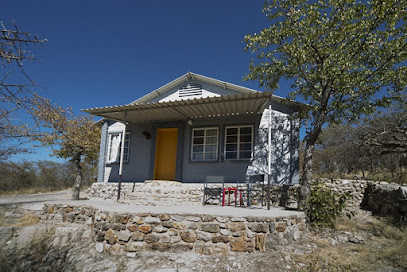
Okaukuejo Etosha
Experience the magic of African wildlife at Okaukuejo, a premier destination within Etosha National Park, where adventure and nature meet.
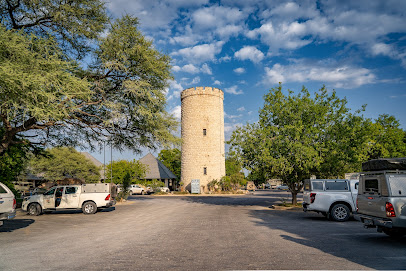
Okahandja Mbangura Woodcarvers Craft Market
Explore the Okahandja Mbangura Woodcarvers Craft Market, a vibrant showcase of Namibian artistry and culture, perfect for unique souvenirs and local cuisine.
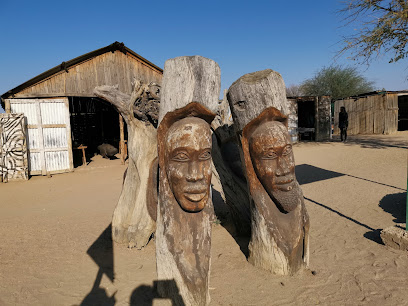
Mount Etjo Safari Lodge
Discover the captivating beauty of Namibia at Mount Etjo Safari Lodge, where luxury meets adventure in the heart of the African wilderness.

Etotongwe Lodge
Discover comfort and adventure at Etotongwe Lodge, your gateway to the stunning landscapes and wildlife of Namibia.
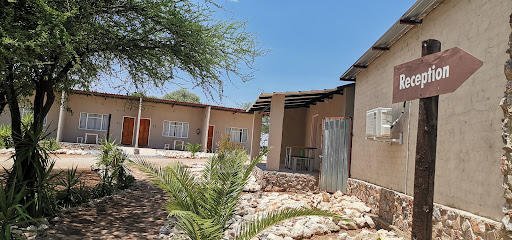
Skeleton Coast National Park
Discover the stunning landscapes and unique wildlife of Skeleton Coast National Park, a true natural wonder in Namibia's rugged wilderness.
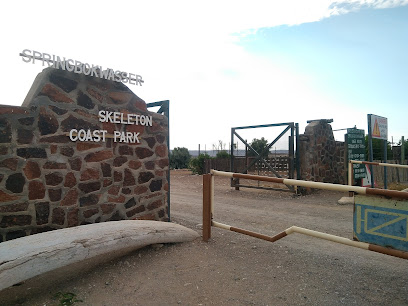
Duwisib Castle
Discover the enchanting beauty and rich history of Duwisib Castle, a must-visit architectural marvel in the heart of Namibia.
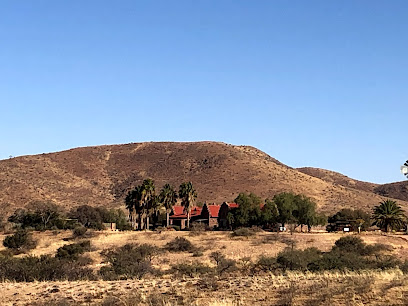
Sophienhof Lodge
Discover the charm of Sophienhof Lodge in Outjo, a perfect blend of comfort, nature, and adventure in the heart of Namibia.

Spreetshoogte Pass
Explore the breathtaking vistas of Spreetshoogte Pass, a scenic gem in Namibia offering stunning views of the Namib Desert's vast beauty.
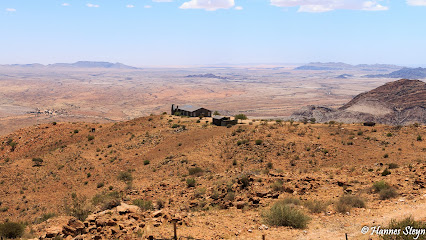
Sasa Safari Camp & Tours
Discover the magic of Namibia at Sasa Safari Camp & Tours, where adventure meets comfort in the stunning Ugab Valley.
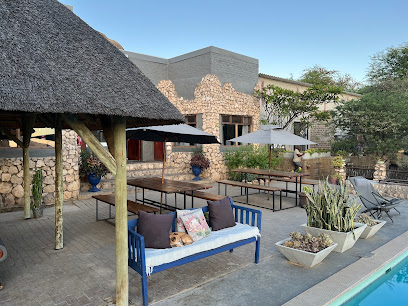
Kai-Oms Backpackers Lodge
Discover the warmth of Namibian hospitality at Kai-Oms Backpackers Lodge, a cozy retreat in Outjo perfect for self-catering adventures.

Kifaru Luxury Lodge & Bush Camp
Discover the perfect blend of luxury and adventure at Kifaru Luxury Lodge & Bush Camp, surrounded by Namibia's breathtaking landscapes and wildlife.

Bull's Party
Explore Bull's Party, a historical landmark in Erongo, Namibia, where rich heritage meets stunning landscapes for an unforgettable experience.
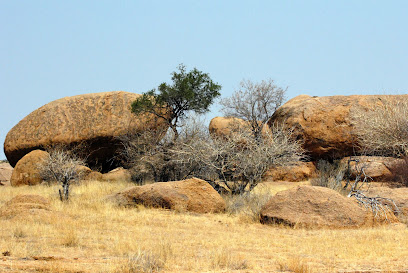
Outjo Municipality
Explore the stunning landscapes and wildlife of Namibia with Outjo Municipality as your essential starting point for an unforgettable adventure.
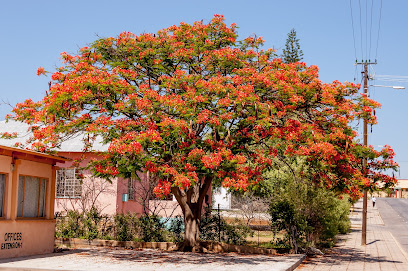
Unmissable attractions to see
Etosha National Park
Explore the breathtaking landscapes and diverse wildlife of Etosha National Park, a premier safari destination in Namibia.
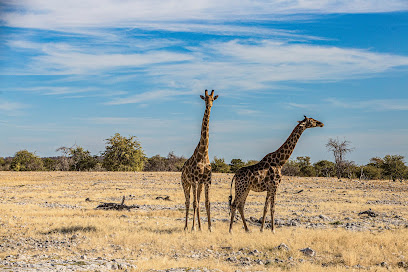
Crocodile Farm Otjiwarongo
Explore the captivating world of crocodiles at Crocodile Farm Otjiwarongo, a must-visit tourist attraction for wildlife enthusiasts and families alike.
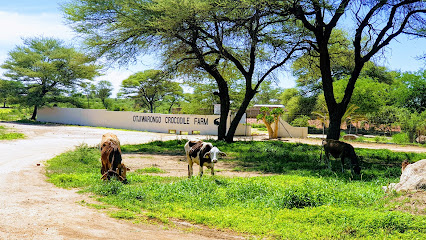
Etosha Village
Experience the natural beauty and wildlife wonders at Etosha Village, your perfect lodge and hotel near Etosha National Park.
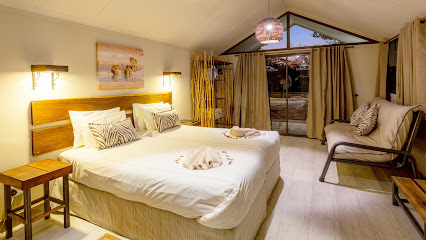
Okonjima Nature Reserve
Experience the breathtaking beauty and wildlife conservation efforts at Okonjima Nature Reserve, a unique Namibian destination for nature and adventure lovers.
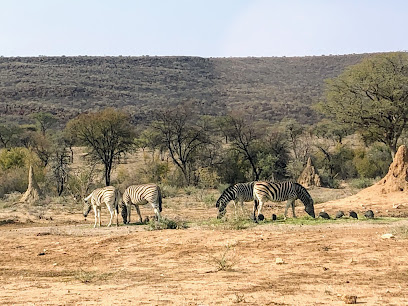
Moringa Waterhole Viewpoint
Experience the breathtaking wildlife and serene beauty at Moringa Waterhole Viewpoint in Etosha National Park, a true gem for nature lovers.
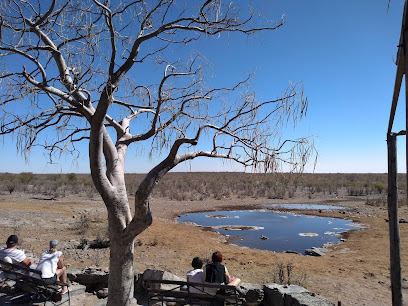
Anderson Gate Etosha National Park (Southern Entrance)
Explore the wonders of Etosha National Park via Anderson Gate, where breathtaking landscapes and diverse wildlife await every traveler.
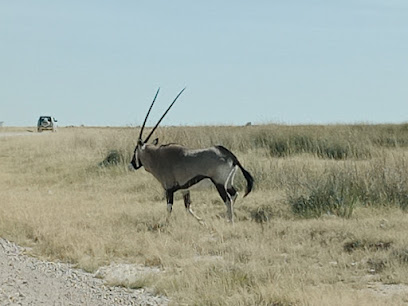
Sasa Safari Camp & Tours
Discover the breathtaking landscapes and rich wildlife of Namibia at Sasa Safari Camp & Tours, your gateway to an unforgettable safari experience.
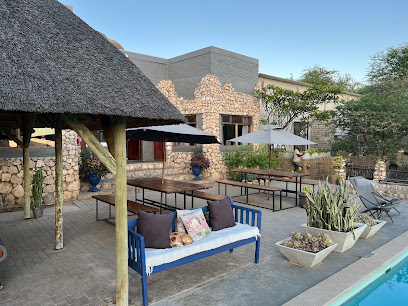
Omapaha Etosha Himba Village
Experience the rich culture of the Himba people at Omapaha Etosha Himba Village, a unique tourist attraction in Namibia showcasing authentic traditions and lifestyle.
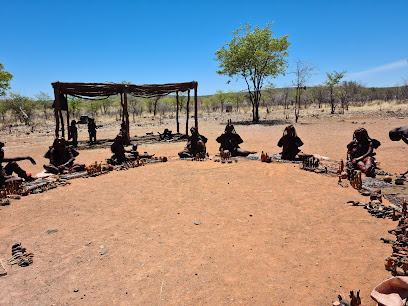
Ombu Village
Explore Ombu Village, a cultural treasure in Namibia that offers educational experiences and stunning landscapes for every traveler.
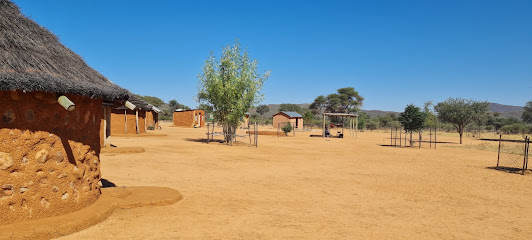
Nuamses Waterhole
Discover the breathtaking wildlife and serene beauty of Nuamses Waterhole in Halali, Namibia, a paradise for nature lovers and photographers.
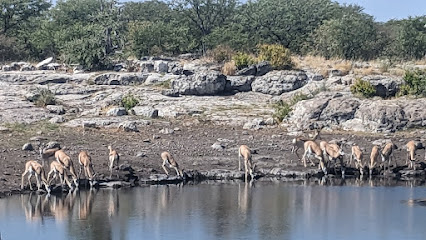
Images of Africa Curio Shop
Explore the rich cultural heritage of Namibia at Images of Africa Curio Shop, where unique, handcrafted treasures await every traveler.
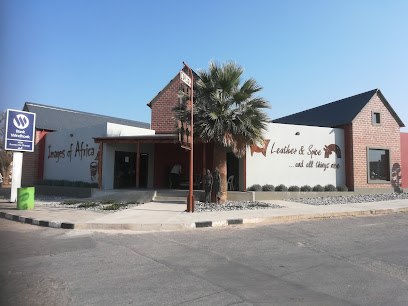
Ansta Farmhouse Camping and Nusery
Discover the beauty of Namibia at Ansta Farmhouse Camping and Nursery, a family-friendly campground perfect for bird watching and outdoor adventures.
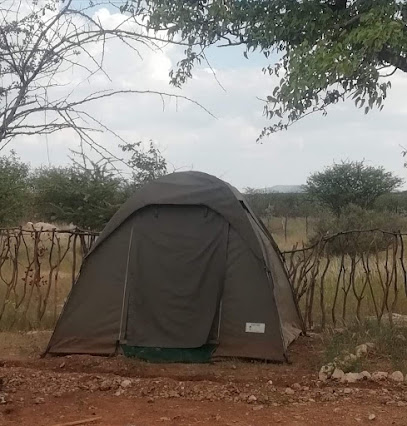
Madoqua Safaris
Discover the essence of adventure at Madoqua Safaris, where the beauty of Namibia's wildlife and landscapes come alive in an unforgettable safari experience.
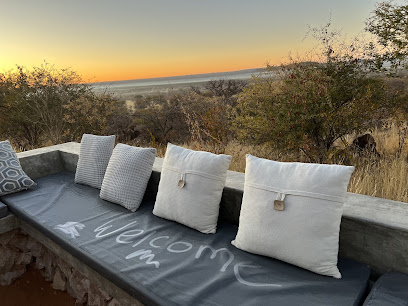
Ugab Terrace Lodge Zip Line
Experience the thrill of Ugab Terrace Lodge Zip Line, soaring over Namibia's breathtaking landscapes for an unforgettable adventure.

Essential places to dine
Outjo Bakkery
Experience authentic Namibian flavors at Outjo Bakkery - your go-to destination for delightful baked goods and local cuisine.
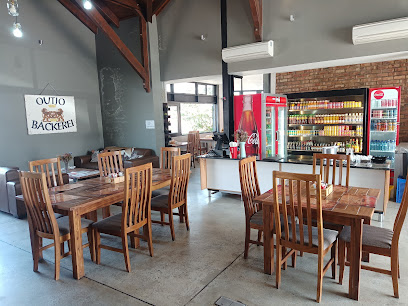
Casa Forno County Hotel
Discover authentic Namibian cuisine and warm hospitality at Casa Forno County Hotel in Otjiwarongo.

Etotongwe Lodge
Discover comfort and warm hospitality at Etotongwe Lodge - your gateway to Namibia's breathtaking landscapes.
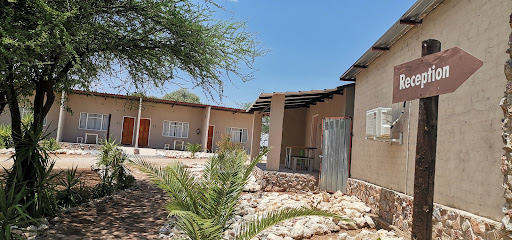
The FARMhouse Boutique Guesthouse 2
Experience authentic Namibian hospitality at The FARMhouse Boutique Guesthouse in Outjo - where comfort meets local culture.
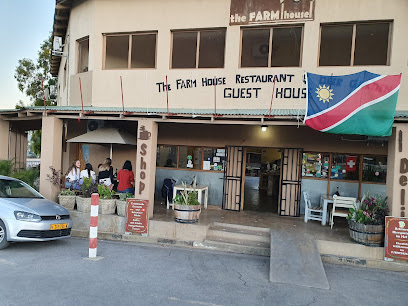
Wimpy
Discover delicious fast food at Wimpy in Otjiwarongo - where flavor meets convenience!
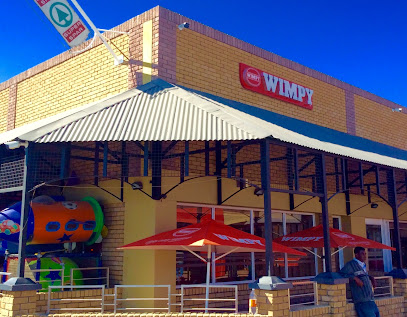
KFC Otjiwarongo
Experience fast food bliss at KFC Otjiwarongo - where classic flavors meet local charm in Namibia's vibrant landscape.
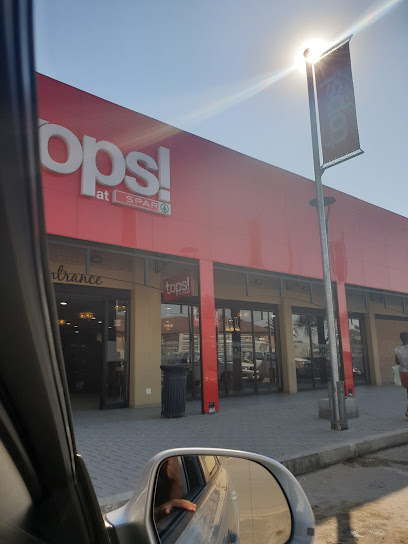
Memoirs Bar & Restaurant
Discover the rich flavors of Namibia at Memoirs Bar & Restaurant in Otjiwarongo - where every dish tells a story.
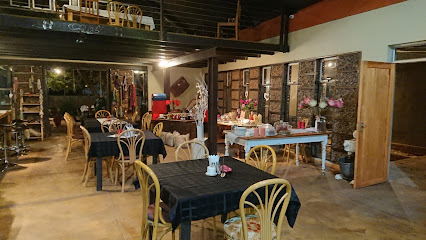
Podjo's Restaurant, Bar & Grill
Experience authentic Namibian flavors at Podjo's Restaurant, Bar & Grill in Otjiwarongo - where great food meets vibrant ambiance.
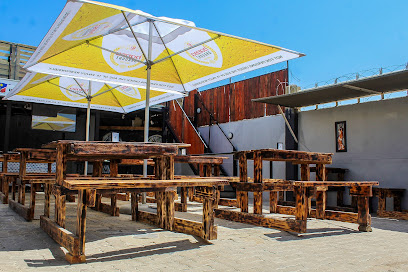
Ombinda Country Lodge
Discover serenity at Ombinda Country Lodge - your gateway to Namibia's stunning landscapes and vibrant wildlife experiences.
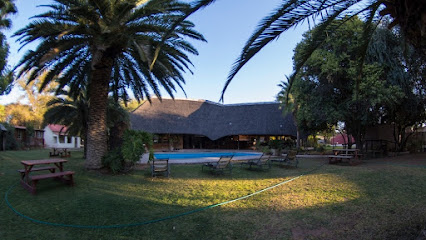
CABRITO, Lounge, Bar & Restaurant
Discover the lively atmosphere and delicious cuisine at CABRITO, Lounge, Bar & Restaurant in Otjiwarongo - perfect for every traveler.
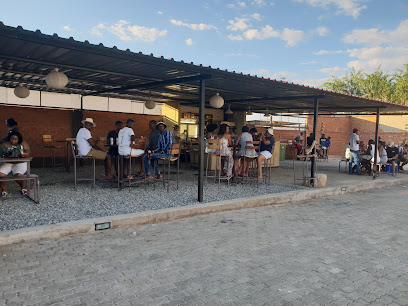
Otjibamba Lodge
Discover Namibian flavors and hospitality at Otjibamba Lodge – your perfect stop for dining and relaxation in Otjiwarongo.
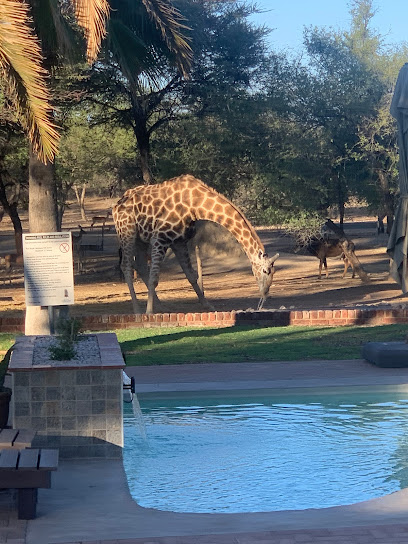
Etemba Beerhouse
Discover the essence of Namibian cuisine and craft beer at Etemba Beerhouse in Otjiwarongo – where flavor meets culture.
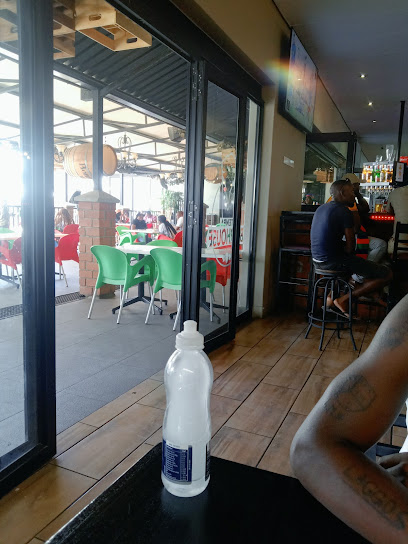
Okeri Guesthouse Bed & Breakfast
Discover comfort and hospitality at Okeri Guesthouse Bed & Breakfast in Otjiwarongo - your perfect base for Namibian adventures.
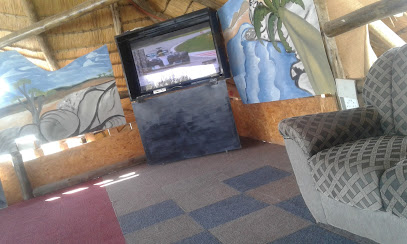
Halali Camp Restaurant
Discover delightful local cuisine at Halali Camp Restaurant nestled in Etosha National Park's serene wilderness.
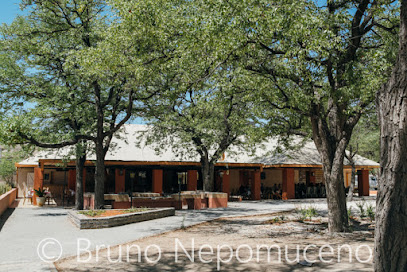
Sasa Safari Camp & Tours
Experience the beauty of Namibia at Sasa Safari Camp & Tours—where adventure meets comfort in stunning Ugab Valley.
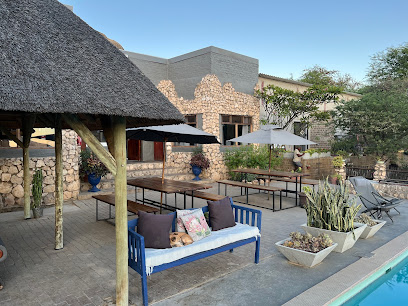
Markets, malls and hidden boutiques
Outjo Bakkery
Experience the delightful tastes of Namibia at Outjo Bakkery, where fresh baked goods and local flavors await you.
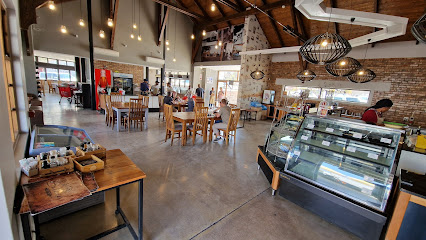
OK Foods & OK Liquor
OK Foods & OK Liquor: Your Ultimate Shopping Destination in Outjo for Quality Groceries and Local Beverages.
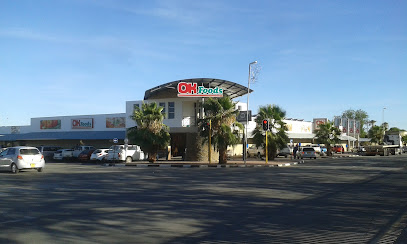
OK FOODS OUTJO
Discover OK Foods Outjo: Your one-stop supermarket for fresh produce, local delicacies, and a vibrant shopping experience in Namibia.
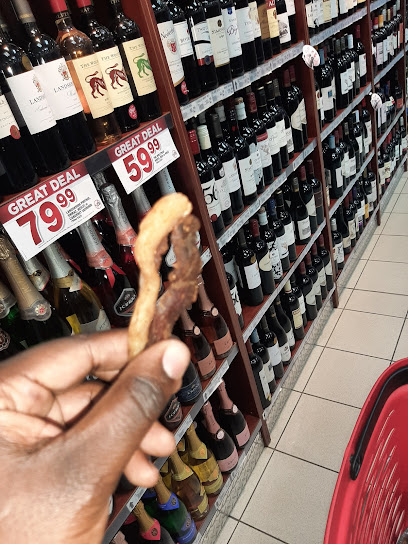
SPAR Outjo
Explore the vibrant SPAR Outjo, a supermarket rich in local flavors and fresh produce, catering to all your grocery needs in Namibia.
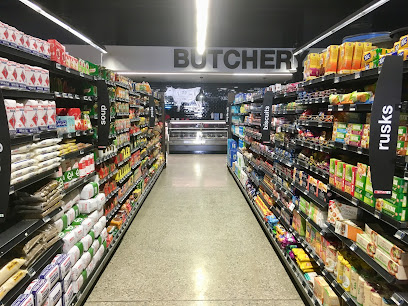
The FARMhouse Boutique Guesthouse 2
Discover comfort and charm at The FARMhouse Boutique Guesthouse in Outjo, where local hospitality meets diverse amenities for an unforgettable stay.
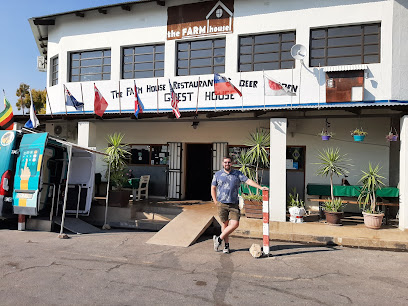
TotalEnergies EOG Service Station
Discover convenience at TotalEnergies EOG Service Station in Outjo – fuel, food, and friendly service await you on your Namibian adventure.
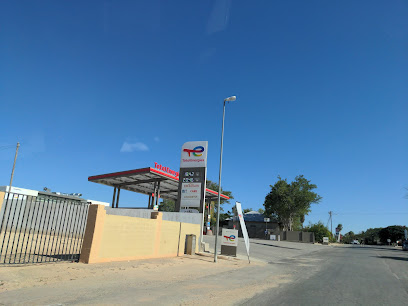
Build it Outjo
Discover quality building materials and home improvement supplies at Build it Outjo, your one-stop-shop for all construction needs in Namibia.
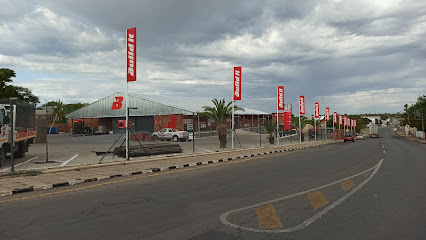
Pupkewitz Megabuild
Discover Pupkewitz Megabuild in Outjo for all your hardware needs, offering a vast selection of building materials, tools, and expert advice.
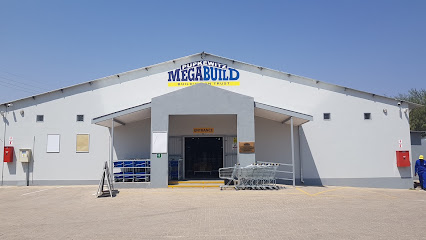
Agra Outjo
Explore Agra Outjo, your go-to destination for unique home goods and local crafts in the charming town of Outjo, Namibia.
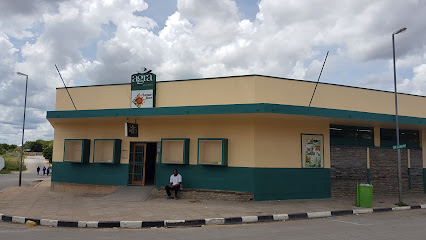
FARMHOUSE BOUTIQUE GUESTHOUSE &RESTAURANT BEERGARDEN
Discover tranquility and culinary delights at the Farmhouse Boutique Guesthouse & Restaurant Beergarden in Outjo, Namibia.
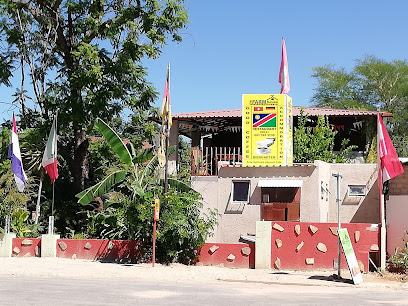
Woerman Brock Outjo
Explore the vibrant selection of local produce and essentials at Woerman Brock Outjo, your go-to grocery store in Namibia.
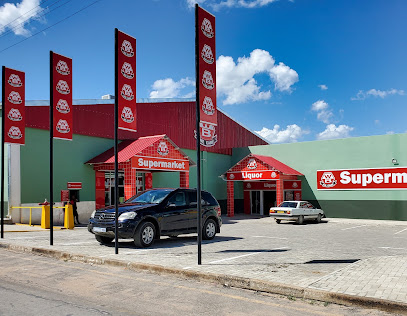
Market
Discover the heart of Outjo at the Market, where local culture, crafts, and flavors intertwine for an unforgettable shopping experience.
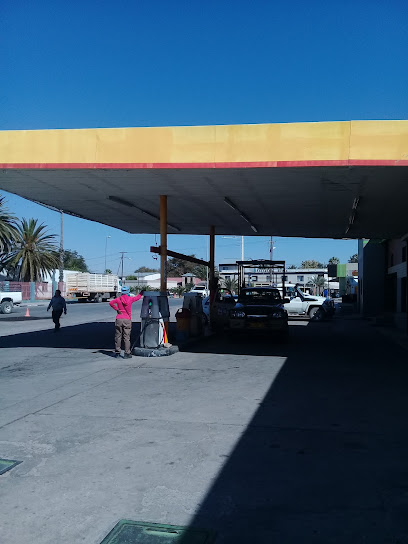
Outjo Park
Experience vibrant shopping and local culture at Outjo Park, the heart of Outjo, Namibia, where unique finds and delightful dining await.

The FARMhouse Boutique Guesthouse and Restaurant
Explore the delightful flavors of Namibia at The FARMhouse Boutique Guesthouse and Restaurant, an inviting bakery and dining experience in Outjo.
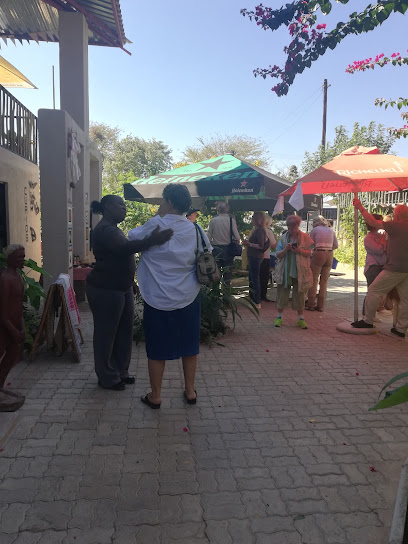
Images of Africa Curio Shop
Explore authentic African crafts and unique souvenirs at Images of Africa Curio Shop in Outjo, a true treasure for travelers.
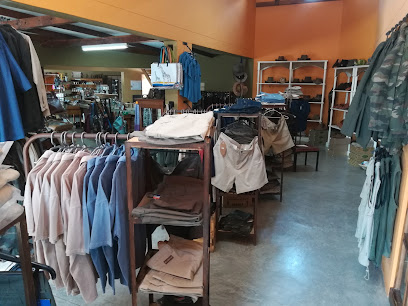
Essential bars & hidden hideouts
Outjo Bakkery
Experience authentic Namibian flavors at Outjo Bakkery, where freshly baked goods and traditional dishes welcome travelers with warm hospitality.
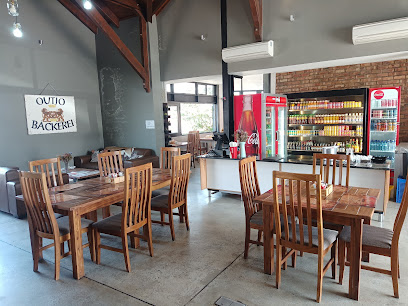
OK Foods & OK Liquor
Discover the vibrant shopping experience at OK Foods & OK Liquor in Outjo – a perfect blend of local culture and essential goods.
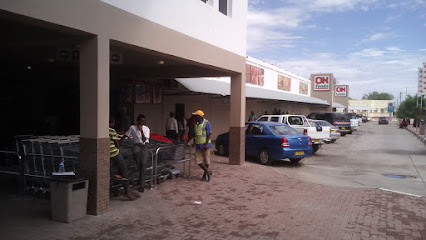
Etotongwe Lodge
Discover the charm and tranquility of Etotongwe Lodge, your gateway to Namibia's stunning landscapes and rich wildlife.
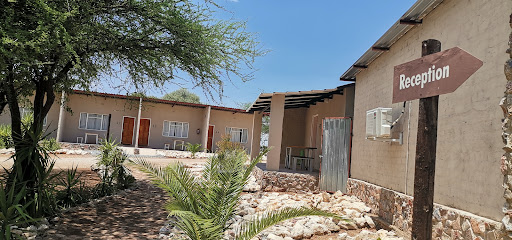
OK FOODS OUTJO
Explore OK Foods Outjo for the finest selection of fresh produce, baked goods, and local delicacies in Namibia's vibrant town.
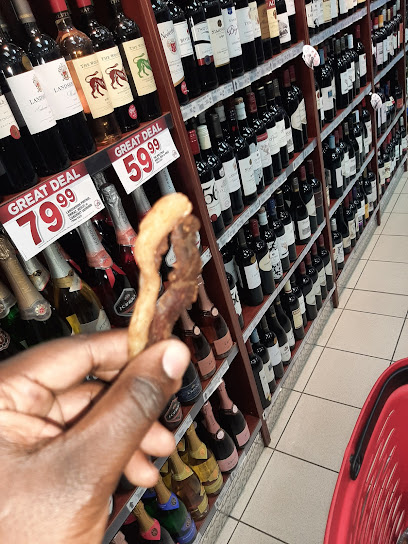
SPAR Outjo
Discover the flavors of Namibia at SPAR Outjo, your go-to supermarket for fresh produce, local delicacies, and grocery essentials.
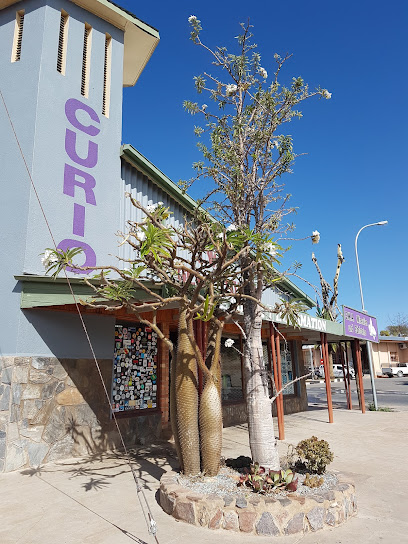
The FARMhouse Boutique Guesthouse 2
Discover the serenity of Outjo at The FARMhouse Boutique Guesthouse, where comfort meets local culture amidst beautiful Namibian landscapes.
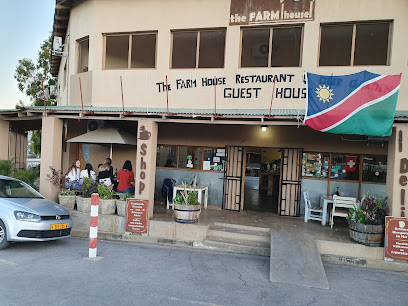
Podjo's Restaurant, Bar & Grill
Experience the vibrant dining scene at Podjo's Restaurant, Bar & Grill, where local flavors meet exceptional hospitality in Otjiwarongo, Namibia.
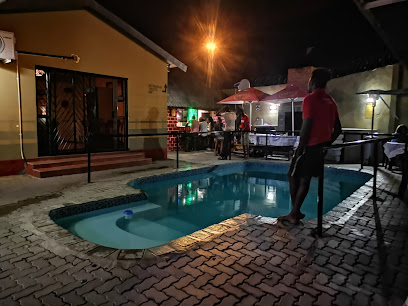
Erindi Sport Bar
Discover the vibrant atmosphere of Erindi Sport Bar in Otjiwarongo, where local culture meets refreshing drinks and lively entertainment.
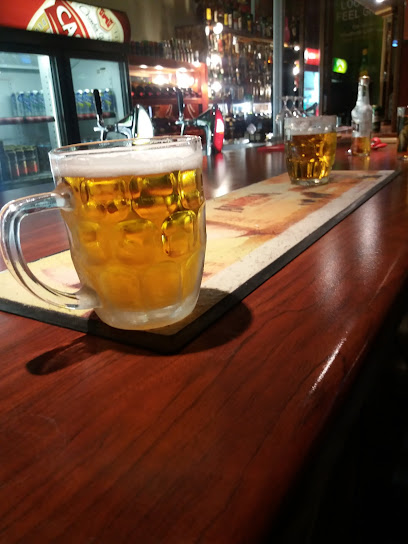
Eyambeko Guesthouse
Discover the charm of Eyambeko Guesthouse in Outjo, where comfort meets Namibian hospitality for an unforgettable stay.
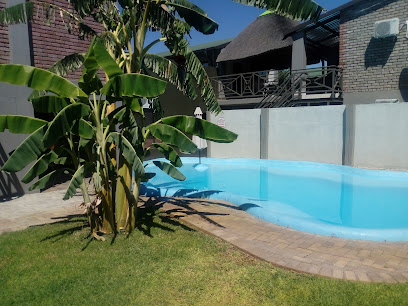
Etemba Beerhouse
Discover the vibrant flavors of Namibia at Etemba Beerhouse, where local cuisine meets exceptional hospitality in Otjiwarongo.
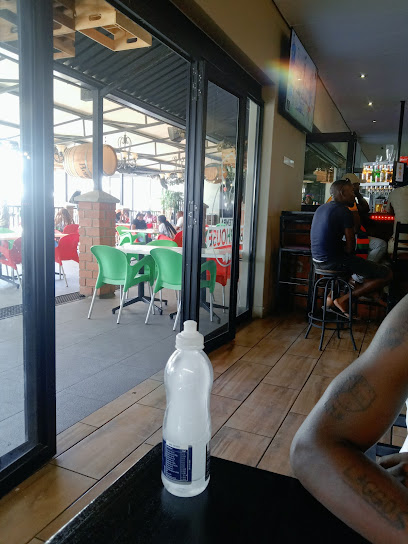
Tabito Bar
Experience the lively spirit of Omuthiya at Tabito Bar, where affordable drinks and a welcoming atmosphere await every visitor.
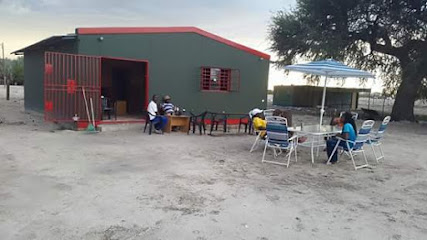
Black beer house
Discover the vibrant atmosphere and local flavors at the Black Beer House in Otjiwarongo, where every sip tells a story.
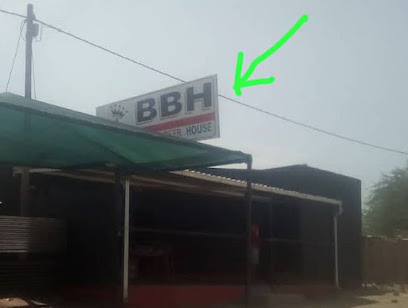
FARMHOUSE BOUTIQUE GUESTHOUSE &RESTAURANT BEERGARDEN
Discover the serene charm of Farmhouse Boutique Guesthouse & Restaurant Beergarden – a perfect blend of comfort, local flavor, and natural beauty in Outjo, Namibia.
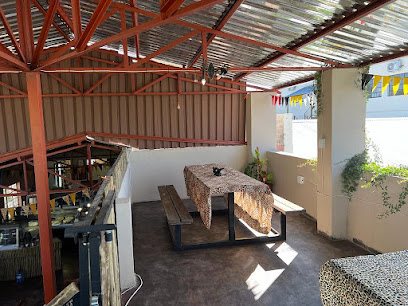
The FARMhouse Boutique Guesthouse and Restaurant
Discover the rich flavors and warm hospitality at The FARMhouse Boutique Guesthouse and Restaurant in Outjo, Namibia.
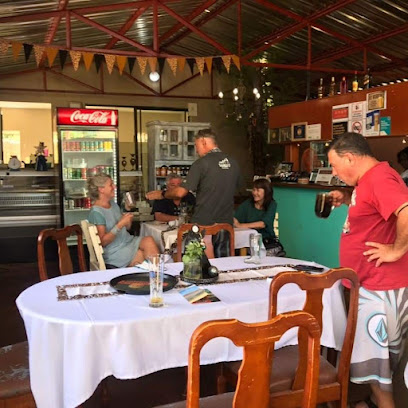
Totos bar
Discover the vibrant atmosphere of Toto's Bar in Outapi, where great drinks and local culture blend seamlessly for a memorable experience.
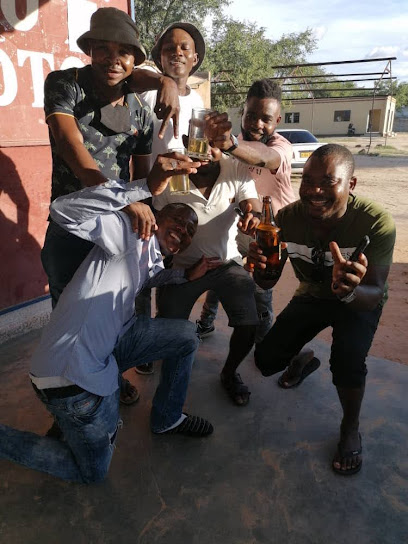
Local Phrases
-
- HelloHallo
[ha-lo] - GoodbyeTotsiens
[to-tsi-ens] - YesJa
[ya] - NoNee
[nee] - Please/You're welcomeAsseblief
[as-se-bleef] - Thank youDankie
[dan-ki] - Excuse me/SorryJammer
[ya-mer] - How are you?Hoe gaan dit?
[hu guan dit] - Fine. And you?Goed. En jy?
[good. en y] - Do you speak English?Praat jy Engels?
[prat y engels] - I don't understandEk verstaan nie
[ek verstahn nee]
- HelloHallo
-
- I'd like to see the menu, pleaseEk wil asseblief die spyskaart sien
[ek vil as-se-bleef dee spays-kart seen] - I don't eat meatEk eet nie vleis nie
[ek eet nee flies nee] - Cheers!Gesondheid!
[guh-sont-hate] - I would like to pay, pleaseEk wil asseblief betaal
[ek vil as-se-bleef buh-tahl]
- I'd like to see the menu, pleaseEk wil asseblief die spyskaart sien
-
- Help!Help!
[help] - Go away!Gaan weg!
[gahn vekh] - Call the Police!Bel die Polisie!
[bel dee poh-lee-see] - Call a doctor!Bel 'n dokter!
[bel un dohk-tuhr] - I'm lostEk is verlore
[ek is fuhr-loh-ruh] - I'm illEk is siek
[ek is seek]
- Help!Help!
-
- I'd like to buy...Ek wil koop...
[ek vil kohp] - I'm just lookingEk kyk net
[ek kik net] - How much is it?Hoeveel kos dit?
[hu-vayl kohs dit] - That's too expensiveDit is te duur
[dit is tuh doo-er] - Can you lower the price?Kan jy die prys verlaag?
[kahn y dee prays fuhr-lahg]
- I'd like to buy...Ek wil koop...
-
- What time is it?Hoe laat is dit?
[hu laht is dit] - It's one o'clockDit is een uur
[dit is een uhr] - Half past (10)Half tien
[hahlf teeyn] - MorningOggend
[oh-khent] - AfternoonMiddag
[mid-ahg] - EveningAand
[ahnt] - YesterdayGister
[gih-stuhr] - TodayVandag
[fun-dahg] - TomorrowMôre
[moh-ruh] - 1Een
[een] - 2Twee
[twee] - 3Drie
[dree] - 4Vier
[feer] - 5Vyf
[fayf] - 6Ses
[sehs] - 7Sewe
[seh-weh] - 8Agt
[ahgt] - 9Nege
[nay-guh] - 10Tien
[teeyn]
- What time is it?Hoe laat is dit?
-
- Where's a/the...?Waar is 'n/die...?
[vahr is un/dee] - What's the address?Wat is die adres?
[vut is dee uh-dres] - Can you show me (on the map)?Kan jy my wys (op die kaart)?
[kahn y may vays (op dee kart)] - When's the next (bus)?Wanneer is die volgende (bus)?
[vuhn-neer is dee fuhl-guhn-deh (buhs)] - A ticket (to ....)'n Kaartjie (na ....)
[un kart-see-uh (nah)]
- Where's a/the...?Waar is 'n/die...?
History of Outjo
-
The region around Outjo has been inhabited for thousands of years, primarily by the San (Bushmen) and later by the Herero people. These indigenous tribes lived as hunter-gatherers and pastoralists, respectively, and their rich cultural heritage is still evident in the area. Rock paintings and engravings found in the vicinity provide a glimpse into their ancient way of life.
-
Outjo's modern history began in the late 19th century during the German colonial period. The town was officially founded in 1897 as a military post by the German Schutztruppe, who were responsible for maintaining order in the colony of German South West Africa. The name 'Outjo' is derived from the Herero word 'outjo', meaning 'small hills'. The German influence is still visible in some of the town's architecture and layout.
-
Between 1904 and 1908, the Herero and Namaqua genocide occurred, one of the darkest chapters in Namibia's history. The German colonial government launched a brutal campaign against the Herero and Nama people, resulting in the death of tens of thousands. Outjo served as a strategic base during this period, and the tragic events have left a lasting impact on the region's collective memory.
-
After World War I, Namibia came under South African administration as a League of Nations mandate. Outjo continued to develop as an important agricultural and trading center during this time. The town's population grew, and infrastructure improved, though tensions between the colonial authorities and indigenous populations persisted.
-
Namibia gained independence from South Africa in 1990, ushering in a new era for Outjo. The town has since seen significant development and modernization, while still retaining its historical charm. Outjo today is a vibrant community that serves as a gateway to the Etosha National Park, attracting tourists from around the world.
-
Outjo is a melting pot of cultures, with a diverse population that includes Herero, Damara, and Afrikaans-speaking communities. The town hosts several cultural festivals throughout the year, celebrating its rich heritage. One of the most notable is the annual Outjo Wildsfees, a festival that showcases local music, dance, and culinary traditions.
-
Outjo boasts several historical buildings that reflect its colonial past. The Outjo Museum, housed in a former German colonial residence, offers visitors a glimpse into the town's history. The St. Martin's Church, built in the early 20th century, is another architectural gem, blending German colonial and African influences.
Outjo Essentials
-
Outjo is located in the Kunene Region of Namibia. The nearest major airport is Hosea Kutako International Airport in Windhoek, approximately 400 kilometers away. From Windhoek, you can rent a car and drive to Outjo, which takes about 4 to 5 hours. Alternatively, you can take a domestic flight to Eros Airport in Windhoek and then drive or take a shuttle service to Outjo. There are also bus services that operate between Windhoek and Outjo.
-
Outjo is a relatively small town, and many of its attractions are within walking distance. For longer trips, local taxis are available and reasonably priced. Car rentals are a popular option for tourists looking to explore the region at their own pace. There are also shuttle services and tour operators that offer transportation to nearby attractions such as Etosha National Park.
-
The official currency in Namibia is the Namibian Dollar (NAD), which is pegged to the South African Rand (ZAR). Credit and debit cards are widely accepted in hotels, restaurants, and larger shops. However, it is advisable to carry some cash, especially for smaller purchases and in rural areas. ATMs are available in Outjo for cash withdrawals.
-
Outjo is generally a safe destination for tourists. However, it is advisable to take standard precautions. Avoid walking alone at night in unfamiliar areas and keep an eye on your belongings in crowded places. While Outjo does not have specific high-crime areas targeting tourists, it is always best to stay vigilant and aware of your surroundings.
-
In case of emergency, dial 10111 for police assistance and 10177 for medical emergencies. Outjo has a local police station and a hospital equipped to handle most medical situations. It is recommended to have travel insurance that covers medical emergencies. There are also pharmacies in town where you can purchase over-the-counter medications.
-
Fashion: Do dress in lightweight and breathable clothing due to the hot climate. Avoid wearing overly revealing clothing, especially in more conservative settings. Religion: Do respect local customs and traditions. When visiting churches or religious sites, dress modestly. Public Transport: Do be courteous and give up your seat to elderly passengers. Don’t be disruptive or loud on public transport. Greetings: Do greet people with a friendly handshake. A smile and maintaining eye contact are also appreciated. Eating & Drinking: Do try local delicacies and accept food offerings graciously. Don’t refuse hospitality, as it is considered impolite.
-
To experience Outjo like a local, visit the Outjo Bakery for fresh pastries and bread, a favorite among residents. Engage with locals at the Outjo Market where you can buy fresh produce and traditional crafts. Spend some time at the Outjo Museum to learn about the town’s history and culture. Don’t miss the chance to take a day trip to Etosha National Park, a renowned wildlife sanctuary nearby.
Trending Landmark in Outjo
-
Etosha National Park
-
Etosha Safari Camp, Gondwana Collection Namibia
-
Okaukuejo Etosha
-
Okahandja Mbangura Woodcarvers Craft Market
-
Mount Etjo Safari Lodge
-
Etotongwe Lodge
-
Skeleton Coast National Park
-
Duwisib Castle
-
Sophienhof Lodge
-
Spreetshoogte Pass
-
Sasa Safari Camp & Tours
-
Kai-Oms Backpackers Lodge
-
Kifaru Luxury Lodge & Bush Camp
-
Bull's Party
-
Outjo Municipality
Nearby Cities to Outjo
-
Things To Do in Otjiwarongo
-
Things To Do in Etosha Village
-
Things To Do in Omaruru
-
Things To Do in Tsumeb
-
Things To Do in Karibib
-
Things To Do in Usakos
-
Things To Do in Okahandja
-
Things To Do in Oshakati
-
Things To Do in Ongwediva
-
Things To Do in Windhoek
-
Things To Do in Swakopmund
-
Things To Do in Walvis Bay
-
Things To Do in Rundu
-
Things To Do in Mariental
-
Things To Do in Lüderitz





